THE GOOD LIFE
What Do We Mean By The Good Life?
What Do We Mean By The Good Life?
When thinking about what makes a ‘Good Life’ for people with disability one only needs to think about what would make a good life for all people.
While the details of this have debated for thousands of years, there is some consensus about what makes a good life: having a home of one’s own, having a job or a way to make a contribution and having opportunities for learning, growth and development that challenge and stretch us.
Finding hope and having purpose are important to people and experiencing all of this in the midst of a rich web of relationships where one belongs are at the heart of what most will agree makes for a good life.
The ideas and concepts in this page act as a foundation for this website and we hope will inspire, encourage, clarify, challenge and develop your thinking about the possibilities of what a Good Life is for everyone – including people with disability.
Belonging and Contribution
Belonging is about knowing you fit in and that you have found a place that reflects you and gives your life added meaning. It is not about being a member of a club, or being connected to a group of similar people, though these are fertile grounds for belonging. The belonging we are talking about is being valued and accepted for who you are and being valued and appreciated for your gifts, strengths and contributions. It is about belonging to something bigger than yourself and it comes from living an ordinary life that makes sense to you and those around you.
We are relational beings and feeling that you really belong is the epitome of the Good Life. Belonging connects you with people who share your interests and passions and it is fertile ground for deepening and strengthening relationships. It is far more than just being present and it is not something that can be manufactured.
The reality of many people with disability is one of isolation. By living, working and studying in ways that are separate to the rest of the community, people with disability live lives that are different and often unrecognisable to everyone else. This undermines belonging and makes it harder to access the benefits of being valued and belonging – the very things that make up the Good Life.
In this section we aim to counteract this by exploring the different ways we belong and gain acceptance in our communities and how this is enriched by valued contributions. These insights are vitally important when we are considering the Good Life for anybody at risk of marginalisation and this is why it is at the heart of bringing the Good Life to Life for a person with disability.
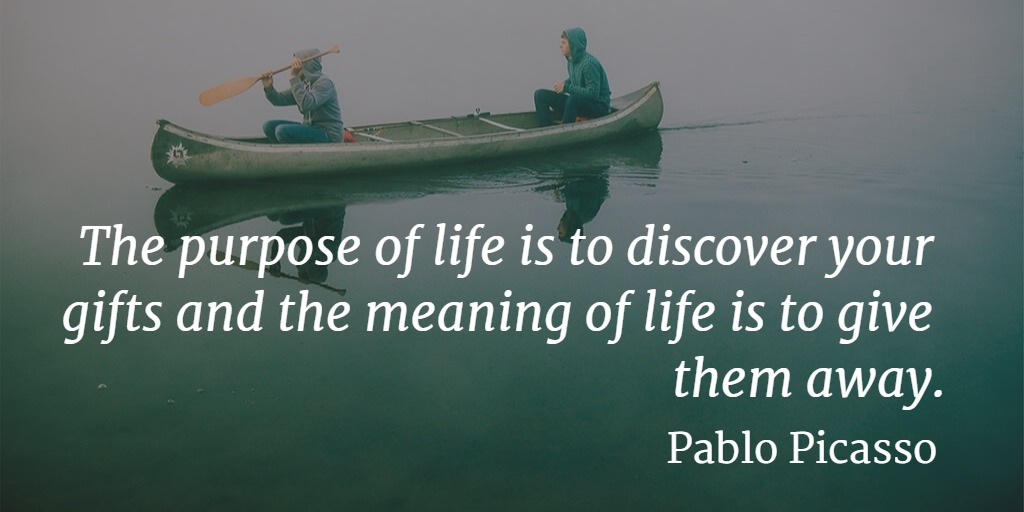
Jane Sherwin
![]()
Acts of acceptance and their cousin, acts of tolerance, towards people who are marginalised, bring out the better qualities in each of us. These acts come from private thoughts and personal actions, but the benefits are more public: they lead to caring and compassionate communities. They lay judgemental thoughts and behaviours to rest. They bring peace between people.
Meaningful and Loving Relationships
This section explores how positive and meaningful relationships are at the heart of the Good Life. These relationships connect us to the world, we learn and grow through them and they provide us with opportunities to love and be loved. They can range from a friendly barista that knows how you like your coffee or someone you play sport with, through to an intimate partner or friend who calls you for advice and support because they value your opinion.
Whilst some relationships are more intimate than others, having a broad network of relationships make our lives richer, easier and more satisfying. We identify ourselves by the culture and interests of our friends; we learn from our friends, they care about us and we care about them and they keep us safe and they support us in ways only friends can – and in a way no paid support ever can.
It may seem obvious how fundamental the need for friendship and connection is, and one could ask why we even need to talk about this. The stark reality is that many people with disabilities are lonely. For some, the only people who really know and appreciate them are family members. Others have no one in their life who is not there in a paid capacity. Sometimes families are isolated too. All of these experiences have formed our way of thinking so that now, people can be living near us yet invisible to us. They can be seen as more different than the same.
This is why, when thinking about how to bring the Good Life to life for a person with disability, positive, meaningful and freely given relationships are key – it is simply not possible to live a good life without them. See below for links to more insights and practical strategies about how we develop relationships within our communities.
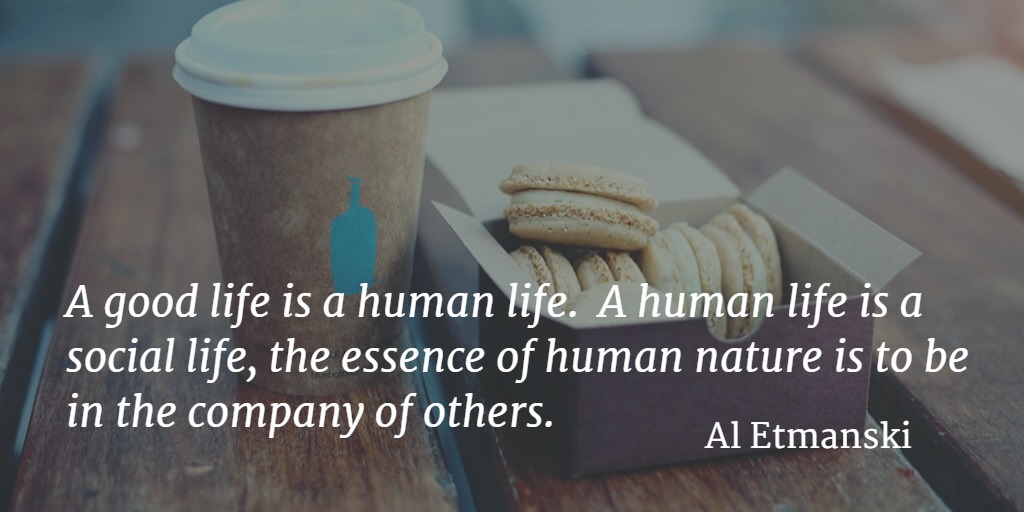
Anna and Keith Coventry
![]() We can see that these relationships give meaning to his life; it is through these relationships that Will feels valued, has meaningful things to do and contributes to his community. We believe that a network of people around him will be essential in ensuring that Will lives a safe and fulfilling life.
We can see that these relationships give meaning to his life; it is through these relationships that Will feels valued, has meaningful things to do and contributes to his community. We believe that a network of people around him will be essential in ensuring that Will lives a safe and fulfilling life.
George Durner
![]() Our work, my friends, your work and mine, is to create new patterns of responses, to create relationships that hold the potential for a life shared together.
Our work, my friends, your work and mine, is to create new patterns of responses, to create relationships that hold the potential for a life shared together.
Erik W. Carter, Beth Swedeen, and Colleen Kurkowski
David Pitonyak
A Life Like Everyone Else
If asked to name ‘the good things of life’ we might be tempted to list the glamorous and exotic but for most of us the fabric of the good life is lived out more in the typical and ordinary – growing up at home; going to the local school; getting a job; moving out and establishing a home of our own; finding a partner; having friends. When enough of these pieces come together we can begin to feel we have ‘found our place’ in life.
It is because of this consensus that a common framework used for crafting a good life for people with disability is to think about ‘ordinary’ or ‘typical’ lives – a life like anyone else’s. This helps to focus thinking on what other people the same age are doing, where and how they are doing it and who they are doing it with. This typical and ordinary life increases the opportunities for real, genuine connection and relationship building.
The idea of ‘Finding my place’ in life is a deeply personal one and is constantly changing and evolving. It is grounded in both your identity and a clear idea of what is important to you. When helping a person with disability to find their place in life this is equally important. That is, ‘starting with the person’ and setting a vision for a positive future that evolves as they move and grow through life.
In this section you will hear stories of people who are finding their place in their community as well as some ideas that can help get clearer about what this means for people with disability.
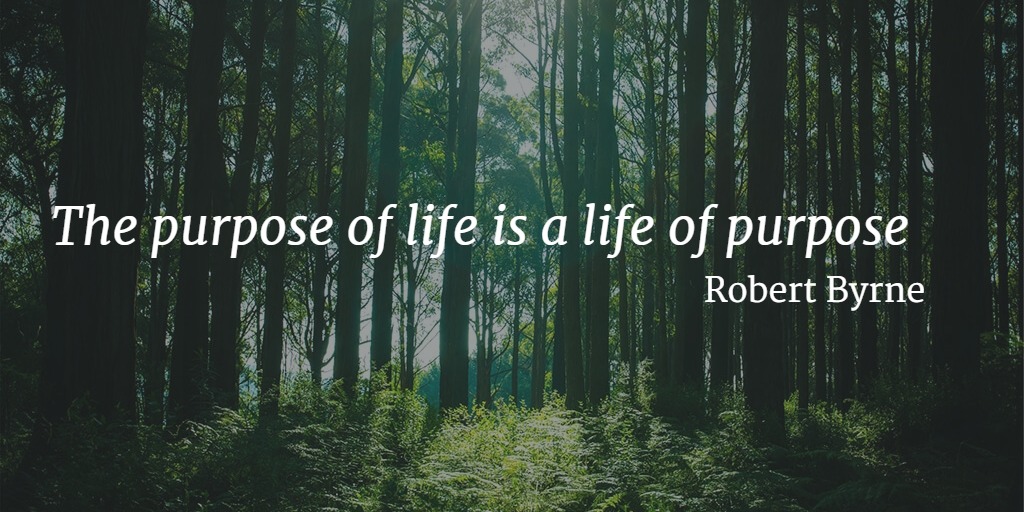
Lisa Bridle
![]()
Setting our compass to local where possible helps us to form the web we want for Sean… The benefit of this is he has school friends who work at the gym he attends, he swims alongside other friends, he has workmates and fellow youth group members who know him or our family from when he was much younger. People from the vege coop where he volunteers also play social Frisbee with him. Many live within blocks of our home.
Jane Sherwin
![]()
To use ‘typical thinking’ is to… ask the question, ‘what are the typical range of ways and means that anyone with a valued status would use to get that need met?‘ The results are more likely to lead a lifestyle that is more real, more valued and more connected to others not in service land.
Pat Fratangelo
![]()
A typical and valued life, along with the attributes that each person brings, should be paramount in all decisions that are made. But unfortunately normal lifestyles and personal gifts are often clouded or unrecognised because they are disguised by people’s perceptions of a disability and their assumptions about appropriate models of support. Many of the individuals I have known are challenging to most, difficult to many and extremely misunderstood.
Being part of an intimate relationship is perhaps the most vital component of wellbeing. The relationship doesn’t have to be a romantic one, but closeness and support is the key.
A good close relationship (or many good relationships) with someone you can:
Those who don’t have this intimate relationship are at much higher risk of the difficulties in life overwhelming them.
There is no denying that income and wellbeing are linked… However, the power of money to affect wellbeing lies in its capacity to alleviate stress and create an environment for happiness. Accordingly, people can achieve normal levels of wellbeing even with low income, so long as they feel in control of how they spend it.
It is imperative for personal wellbeing to be doing something that provides meaning in life. People are happier when they are active, particularly when that activity gives them a sense of purpose or responsibility.
For some this may be:
Australian Unity Wellbeing Index 2015
The notion that some kind of stable, static and enduring entity called ‘the community’ exists out there for people to slot into is a myth. However, finding ways for people to be known, appreciated and contributing in their local neighbourhoods and networks is an important piece of building a good life. Contributions like this make for a good life for everybody.
Being a spectator is not enough – to gain real value out of your community you need to be actively involved in areas that interest you and to get to know the people you encounter. This opens up the richness of community that comes available through the informal network of relationships.
Concerns are sometimes raised about the dangers present in community, especially for people who have a higher degree of vulnerability, but the risks of marginalisation and isolation are far worse. Being known and valued by your local neighbourhood is some of life’s most protective safeguards. By this we mean people who will invite you over for a cup of tea, check your mail when you’re away or notice when you don’t turn up for a regular engagement.
It is also important to be reciprocal with these things; be a good neighbour, invite people over for a cup of tea and keep an eye out for those around you. For a person with disability some assistance in doing this may be required, but when supported well the benefits of being an active member of the community will still be there for them.
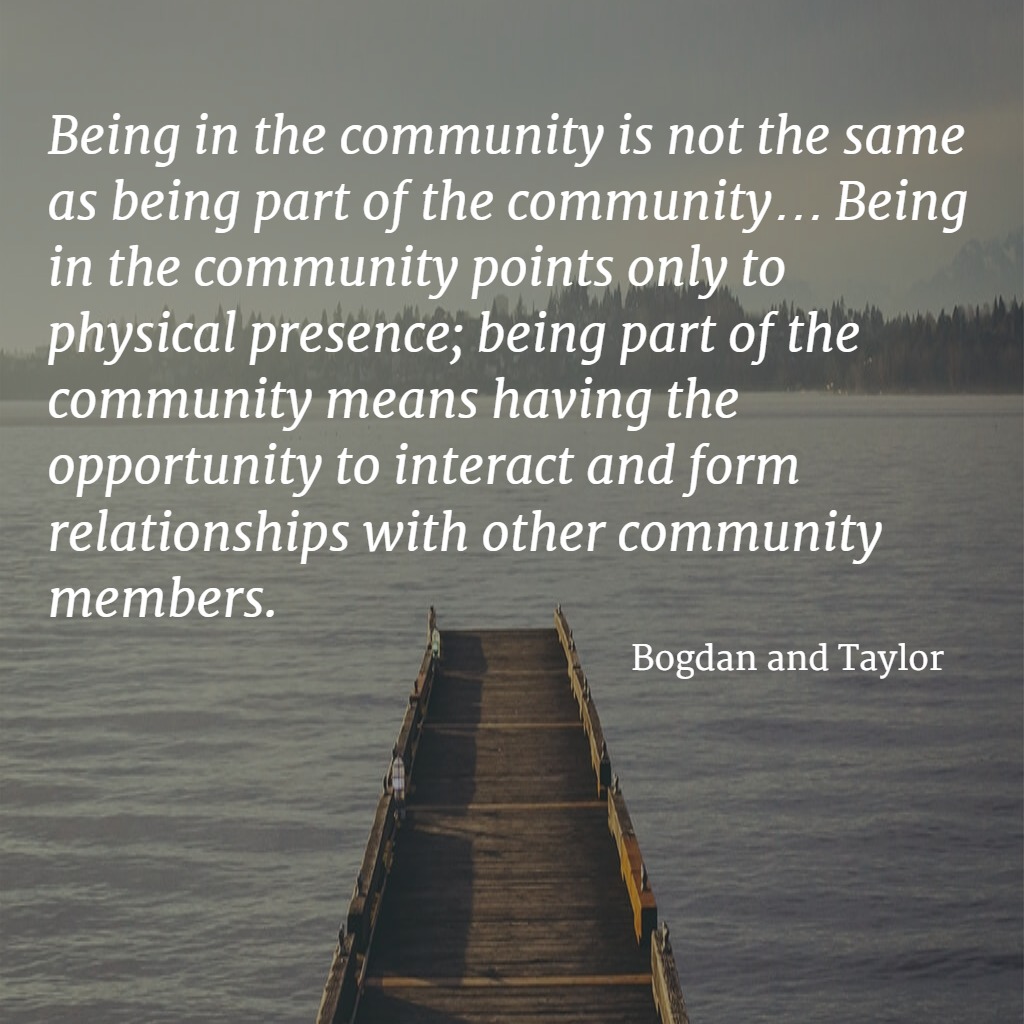
Ingrid Burkett
![]() At the root of ‘community’ are human relationships – the different ways that people find to live with, and love one another – in informal and formal ways, through friendships, associations, organisations, interactions, and so on… It is increasingly recognised that a lack of relationships – a lack of community – is a key characteristic of disadvantage and poverty in Australia.
At the root of ‘community’ are human relationships – the different ways that people find to live with, and love one another – in informal and formal ways, through friendships, associations, organisations, interactions, and so on… It is increasingly recognised that a lack of relationships – a lack of community – is a key characteristic of disadvantage and poverty in Australia.
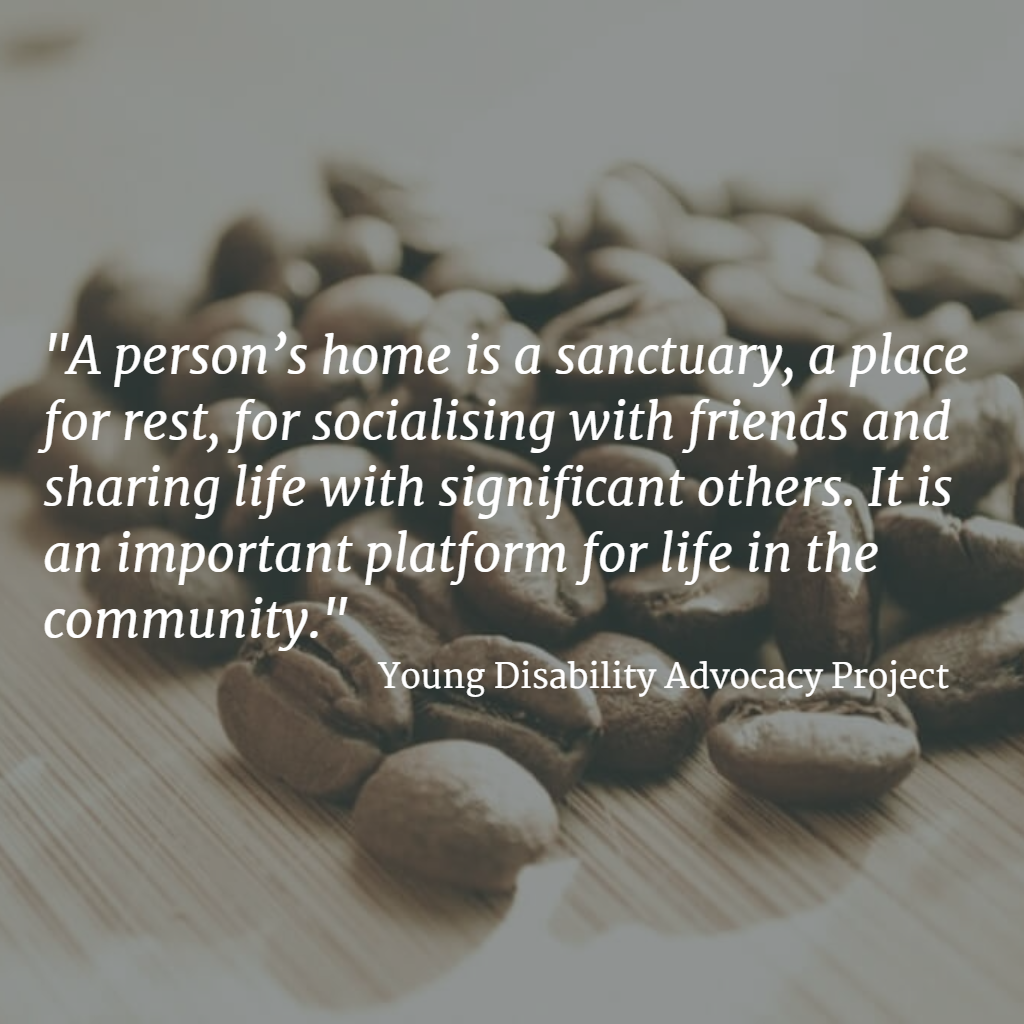
Self-Determination in action
Making choices about things that matter to you and feeling you have meaningful control over your life are cornerstones of the good life. It offers you the freedom to choose the life you want to live and make decisions about the things that are important to you.
It is important to acknowledge that we all need help making decisions to some degree and that needing assistance to make choices does not mean we are unable to make choices. After all, how many of us do our own taxes or fix our own cars?
Similarly, many people with disability require assistance in making decisions that are in their best interest. This can lead to a belief that others need to make decisions for them and as outlined in the following sections this can lead to some very negative consequences.
For genuine choice and control to exist there must be a belief that everyone has the right to make their own decisions. It requires an assumption that everyone has the capacity to make those decisions for themselves (this is expressed in Self-Determination theory – see below). This will ensure that any decisions made not only include the individual with disability, but that they have control in how those decisions are put in to practice.
Narissa Wilson
![]() Having control and the power over the direction of my life allows me to live. For me, Self-Managed Support means that I, the individual, direct the way my life lies, faces and moves in reference to my visions. Working with and along side a service is much more satisfying than against.
Having control and the power over the direction of my life allows me to live. For me, Self-Managed Support means that I, the individual, direct the way my life lies, faces and moves in reference to my visions. Working with and along side a service is much more satisfying than against.
Greg Mackay
![]() Regardless of the terms empowerment, autonomy, and self-determination having many values, beliefs and nuances inherent in them, they do share one important foundation. They all reveal a sense of individual people striving to have, at the very least, as much say over their own lives as does anyone else in society; they are about individual people wanting and needing to be part of their social world.
Regardless of the terms empowerment, autonomy, and self-determination having many values, beliefs and nuances inherent in them, they do share one important foundation. They all reveal a sense of individual people striving to have, at the very least, as much say over their own lives as does anyone else in society; they are about individual people wanting and needing to be part of their social world.
John Armstrong
![]()
Opportunity without capacity building often leads people to do one or a combination of three things: select what they have always chosen, select things that make others happy or select the last option offered. This can produce an illusion of choice making that many observers are fooled by, but keeps people locked into a very narrow range of experience; they are neither having real opportunity to explore new things, nor are they growing in capacity.
A starting point for genuine choice and control is the belief that people are motivated to act in their own best interests. Being able to determine what is important to you and then follow through and persevere to make it happen is central to this. Self-Determination theory explores this notion and outlines the following three universal psychological needs:
The more self-motivated an individual is, the greater the level of self-determination. The opposite is also true and there is a long history of people with disability not having these needs met. As outlined in this theory, when these needs are not met then the foundation motivation is lost.
The resulting lack of motivation often results in these individuals being seen as unable to learn or being labelled as a ‘problem’ when in reality this stems from boredom, feelings of helplessness, lack of belonging or simply not having acquired the necessary skills.
Self-Determination encourages its own momentum. Being appreciated and recognised for who you are and what you have to offer the world is a great source of motivation. This in turn builds our confidence, sense of belonging and self-esteem. As we recognise our own strengths we develop our autonomy and are motivated to push ourselves further.
This is also closely tied to other people’s expectations of us.
Lifelong learning
There is a widely held expectation that we, as humans, have the capacity, potential and desire to learn new things. We do this as we adapt to change, as we adjust our behaviour to new circumstances and as we age. We learn, we grow and we gain wisdom.
For people with disability the opportunity to learn is often limited by often well-meaning yet risk-averse attitudes. A lack of choice and control has exacerbated this as people have had to choose from what services have offered rather than what is important to or for them. This limits expectations and can lead to people with disability being restricted to activities that are neither meaningful, challenging nor rewarding.
This contributes to a self-fulfilling prophecy as they become conditioned to this thinking which further restricts their ability to handle change. Psychologists call this learned helplessness, which is a person begins to behave in a helpless manner because they feel they have no choice or control over their lives.
This is why, when considering the Good Life, we remember that lifelong learning and growth is vital. It is equally vital that we remember that everyone, regardless of their impairments, age or perceived capacity has the potential to learn when given the opportunity and to deny them this has serious consequences for their well-being.
The elements discussed in this page all combine to create the Good Life for anyone and everyone. We share them here as a basis for the ideas discussed in the rest of the website but also as a reminder when considering what is important in your life and in the life of anybody you know with disability.
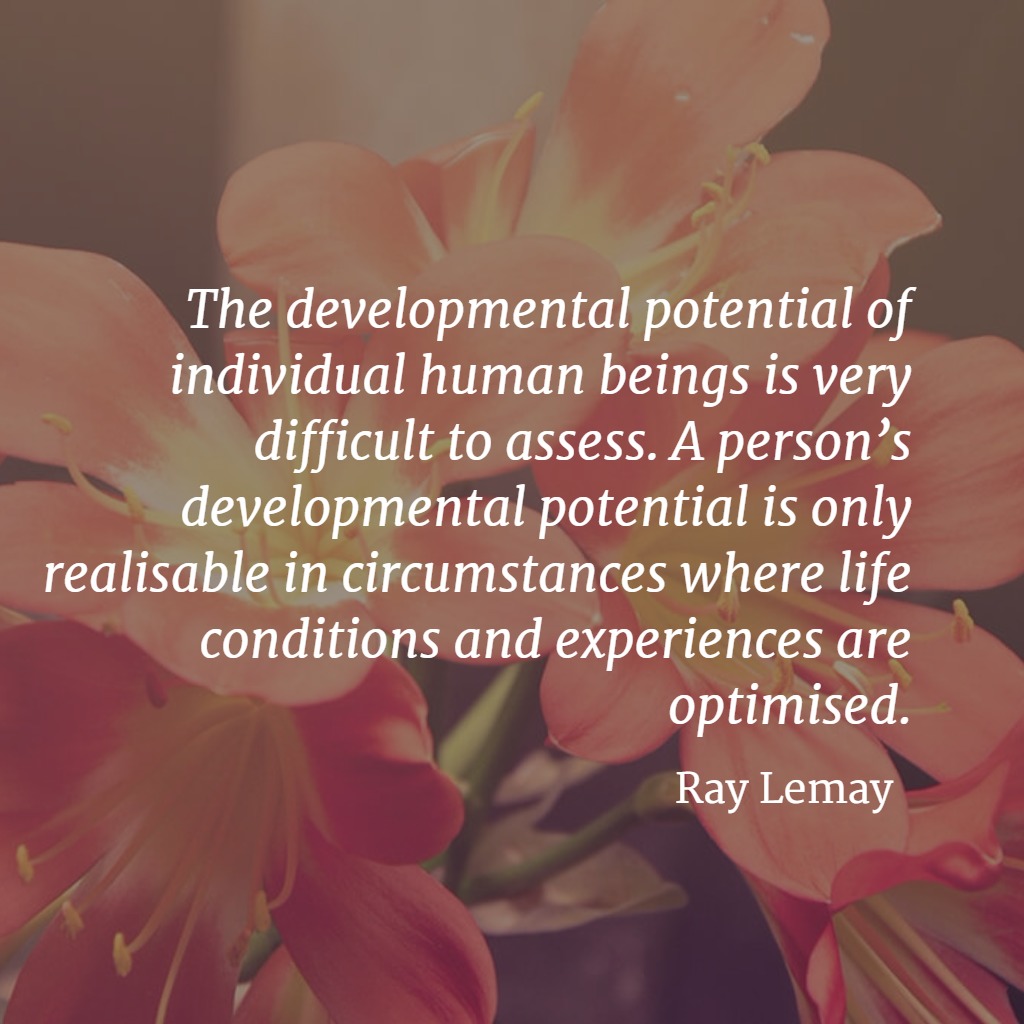
Resourcing Inclusive Communities
![]()
Most people with disability have been tagged with a long list of deficits [and]… are not expected to learn, and so are not given the chance. The people and families represented in this book chose to see beyond the deficits and limiting statements of experts, professionals, relatives and general commentators! They decided life is a learning opportunity for everyone.
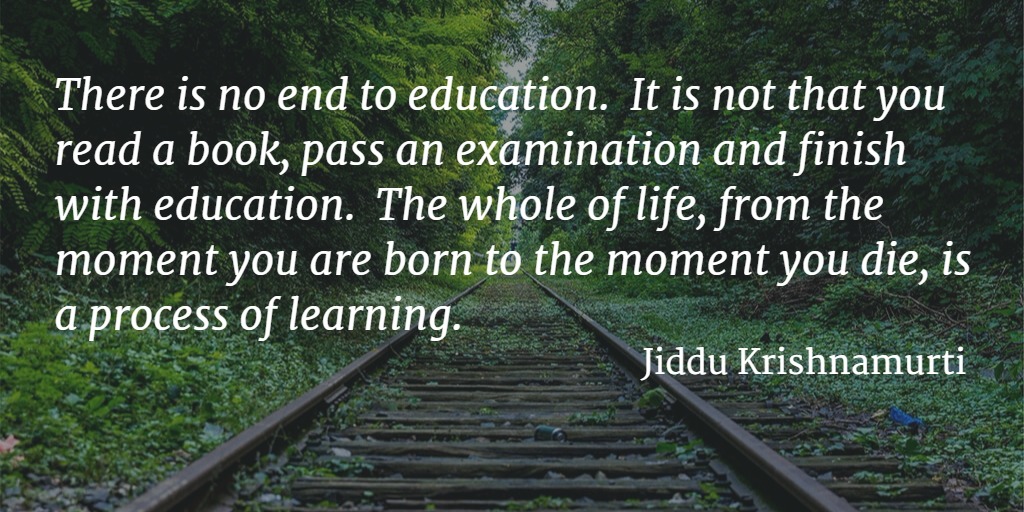
Paraphrased from ‘A Brief Introduction to Social Role Valorisation’.
Dr Wolf Wolfensberger